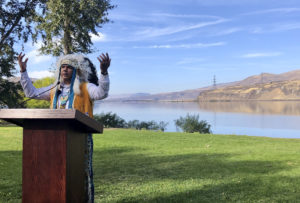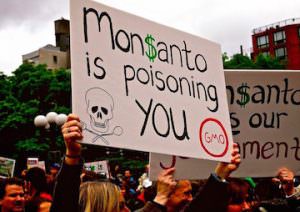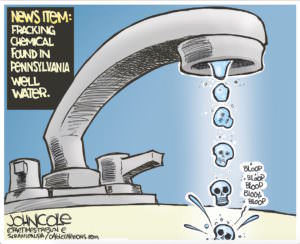Chemical Industry Rewrites Environmental Textbooks
Evidence shows that California school officials yielded to complaints made by a trade group representing U.S. chemical companies and altered environmental textbooks to include industry-supplied messages promoting plastic bags. (more)
Evidence shows that California school officials yielded to complaints made by a trade group representing U.S. chemical companies and altered environmental textbooks to include industry-supplied messages promoting plastic bags.
After reviewing the state’s new curriculum, in 2009 corporate representatives argued for educational balance, objecting to the fact that the benefits of plastic bags were not discussed alongside descriptions of their destructive environmental effects. Subsequently, text stating that “Plastic shopping bags are very convenient to use. They take less energy to manufacture than paper bags, cost less to transport and can be reused,” was added.
Marine researchers and state Sen. Fran Pavley (D-Santa Monica) were appalled by the industry’s behavior. “The American Chemistry Council obviously got engaged to protect their bottom line,” Pavley said. Although the council, which pushed for the edit, did not finance the curriculum’s development, state documents reveal the group has spent $9 million lobbying government agencies since 2003. –ARK
Your support matters…California Watch:
Under pressure from the American Chemistry Council, a lobbying group for the plastics industry, schools officials in California edited a new environmental curriculum to include positive messages about plastic shopping bags, interviews and documents show.
The rewritten textbooks and teachers’ guides coincided with a public relations and lobbying effort by the chemistry council to fight proposed plastic bag bans throughout the country. But despite the positive message, activists say there is no debate: Plastic bags kill marine animals, leech toxic chemicals and take an estimated 1,000 years to decompose in landfills.
In 2009, a private consultant hired by California school officials added a new section to the 11th-grade teachers’ edition textbook called “The Advantages of Plastic Shopping Bags.” The title and some of the textbook language were inserted almost verbatim from letters written by the chemistry council.
Independent journalism is under threat and overshadowed by heavily funded mainstream media.
You can help level the playing field. Become a member.
Your tax-deductible contribution keeps us digging beneath the headlines to give you thought-provoking, investigative reporting and analysis that unearths what's really happening- without compromise.
Give today to support our courageous, independent journalists.






You need to be a supporter to comment.
There are currently no responses to this article.
Be the first to respond.